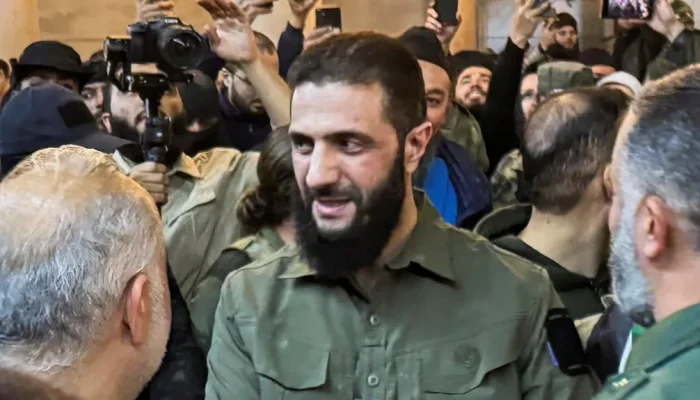The United States has started direct talks with Hayat Tahrir al-Sham (HTS), the group that now controls Syria after the fall of Bashar al-Assad’s government. This is the first time the US has admitted to speaking directly with HTS, even though it still considers the group a terrorist organisation. Secretary of State Antony Blinken shared this news during a meeting in Jordan with leaders from Arab countries, Turkey, and Europe.
These talks are happening at a time when Syria is at a crossroads. After 13 years of war, millions of Syrians are hoping for peace, unity, and a chance to rebuild their country. But the challenges ahead are huge, and the future remains uncertain.
What Happened in Syria?
Syria’s civil war started in 2011 after peaceful protests against Assad’s rule were met with violence. The conflict turned into a brutal war that killed more than 500,000 people and forced millions to flee their homes.
On December 8, 2024, Assad’s 24-year rule ended when opposition forces took the capital, Damascus, and forced him to flee to Russia. For the first time in over 50 years, Syria is no longer ruled by the Assad family.
HTS, the most powerful rebel group, now leads the country. Its leader, Ahmed al-Sharaa, known as Abu Mohammed al-Jolani, appointed an interim prime minister to begin forming a new government.
Why Is the US Talking to HTS?
HTS has a controversial past. It was initially an al-Qaeda-linked group called Jabhat al-Nusra, and many countries, including the US, still see it as a terrorist organization. However, HTS claims it has broken ties with al-Qaeda and now says it wants to build an inclusive government for all Syrians.
The US has started talking to HTS for a few reasons:
Stabilizing Syria: After years of war, the US wants to help prevent Syria from falling into chaos, as happened in Libya after Gaddafi’s fall.
Humanitarian Concerns: The US is pushing for peace and unity in Syria to improve life for ordinary people.
Austin Tice’s Case: The US is also using these talks to learn more about the fate of missing journalist Austin Tice, who disappeared in Syria in 2012.
Blinken’s announcement shows how complicated diplomacy can be. Sometimes, countries have to talk to groups they don’t fully trust to work toward bigger goals.
What Did World Leaders Discuss?
At the meeting in Jordan, leaders from eight Arab countries, Turkey, and Europe talked about Syria’s future. They all agreed on a few key points:
Avoiding Chaos: Countries like Jordan and Iraq warned about the dangers of instability spreading across the Middle East if Syria falls apart.
Building Unity: They stressed the need for a Syrian government that respects everyone, including minorities, and avoids splitting the country along religious or ethnic lines.
Learning from the Past: Turkey’s foreign minister said it’s important to avoid mistakes made in other war-torn countries like Libya, where institutions collapsed after Gaddafi’s fall.
Notably, Syria itself was not represented at the talks, and neither were Iran and Russia, Assad’s biggest backers during the war.
Challenges for Syria
Syria’s new leaders face many challenges. The war destroyed the country’s infrastructure, displaced millions, and left deep divisions among its people. HTS will have to prove that it is serious about forming an inclusive and fair government, not one that serves only its interests.
Many people are skeptical about HTS because of its violent history. The group must show real change and work toward peace, not revenge, to gain trust.
There’s also the issue of foreign interference. For years, Syria was a battleground for international powers like the US, Russia, and Iran. If these outside forces continue to pull Syria in different directions, it will be harder for the country to move forward.
What’s Next for Syrians?
Despite the challenges, there is hope. The fall of the Assad regime gives Syrians a chance to build a better future. Leaders in Syria and worldwide are now working to support a peaceful transition.
This includes creating a government that represents all Syrians and ensuring the country doesn’t become a haven for terrorist groups. For ordinary Syrians, this could mean more stability, fewer airstrikes, and a chance to rebuild their lives after years of suffering.
The international community also has a vital role to play. Countries can provide financial aid, help rebuild infrastructure, and support peacekeeping efforts. But they must do so carefully to avoid repeating mistakes in other war-torn countries.




